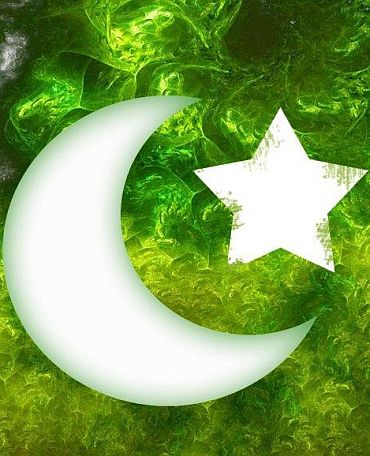
While these major changes are taking place in the US policies, India seems stuck in the old paradigm of wishing that somehow Pakistan will turn Gandhian someday, says Colonel Anil Athale (retd)
When the US Secretary of State Hillary Clinton met her Indian counterpart S M Krishna in New Delhi on July 19, one of the major topics of discussion must have been future of Pakistan.
Foreign policies of mature nations are slow to change and the process is more akin to evolution rather than any revolution. It seems however that the 'public diplomacy' of both countries is now slowly but surely aligning with the 'real politick' in the region.
Pakistan for a very long time, almost last 50 years, was the lynchpin of American policy in the Middle-East and South Asia. It was a valuable base for American airpower against the erstwhile Soviet Union but retained its importance even after demise of Soviet Union in American scheme of things.
...

Pakistan (meaning the Pakistani army in reality) was seen as a useful tool to be used in the oil rich Middle-East to shore up pro-American regimes, thus avoiding placing 'American Boots' on ground there.
The last conflict in which Pakistan played its designated role was the Afghan War of 1979-1989.
The US lavished Pakistan with conventional weapons and turned a Nelson's eye to its smuggling of nuclear weapon technology with European and Chinese help.
During this period, the US also helped India with economic assistance as it wanted to make sure that Indian democracy does not fail and India becomes Communist.
But India's 'non-aligned' policy and leaning towards Soviet Union also ensured that US checked India militarily by building up Pakistan.
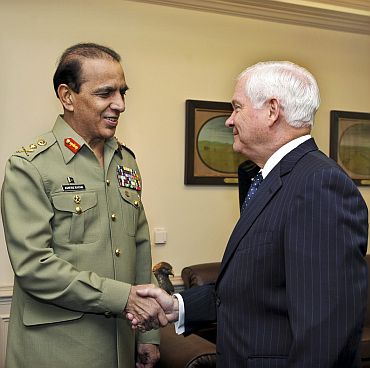
There was a brief period of change when in wake of Chinese attack in 1962; it offered military help to India.
But once a US-China quasi alliance came into being after the 'Shanghai Declaration' of 1972, it became a joint Sino-US project to build up Pakistan, then smarting from defeat in Bangladesh war of 1971.
After the end of the Cold War, the US has fought three major land wars in the vicinity of Pakistan, the first Gulf War in Iraq in 1991, the second Afghan war since 2001 and second Iraq war since 2003.
In none of these did Pakistan play any supporting role.
The US is now discovering that Pakistan is part of the problem and NOT solution in Afghanistan.
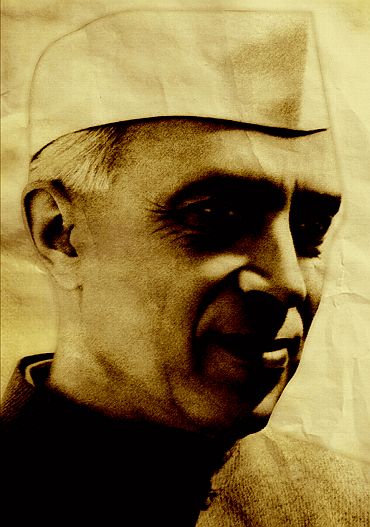
Indian approach to Pakistan was 'minimalist' for most of the time (except for brief period under Rajiv Gandhi 1984-1989).
India maintained a minimum level military edge over Pakistan.
This author while working in the ministry of defence has seen the kind of tussle that went on between General K S Thimayya and (the defence minister) Krishna Menon over raising of one or two additional battalions in 1961!
Under Jawaharlal Nehru India concentrated on economic development. All these years India never perceived any 'threat' from Pakistan other than pin pricks in Kashmir.
Nehru's calculation was that the concentration on economic development and science and technology, will automatically give India the necessary military muscle in future.
This was a sound strategy except that at implementation level the inefficiencies of the Defence Research & Development Organisation and government controlled defence industry, kept India perpetually dependent on imported arms.
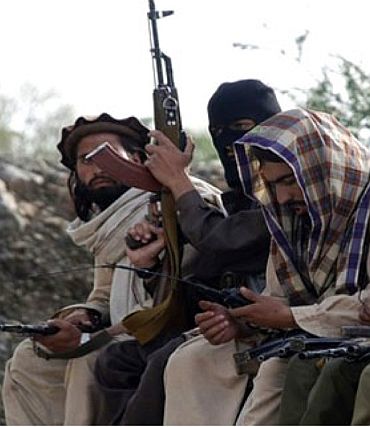
Two major changes post the Cold War that ought to have had major impact on the US and Indian approach to Pakistan were:
1 Radicalisation of Pakistani army and society.
2 Furious Pakistani build up of its nuclear arsenal.
In the first decade of the post Cold War era the Americans were instrumental in ensuring a Taliban take over of Afghanistan by Pakistan.
Even after Soviet withdrawal, the Najibullah regime had survived for over two years. It was a Pakistani army's barely disguised direct intervention and defection of warlord Rashid Dostum that ensured Taliban victory.
The American calculation was to then use Afghanistan as a gateway to Central Asian energy resources.
But the short sighted Cold War policy of dallying with Islamic radicalism came to roost when the US suffered a terrorist attack on 9/11 on its mainland.
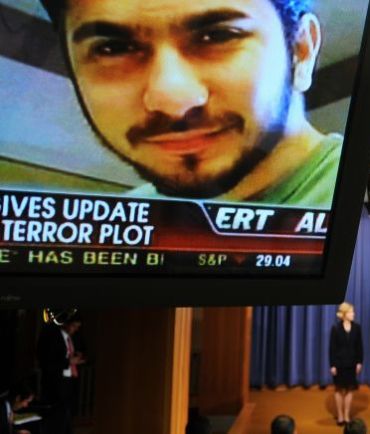
This was President Ronald Reagan's legacy. While in Pakistan proper, Zia-ul-Haq's mindless Islamisation brought into being a generation of fanatics in Pakistan.
In the last ten years the Americans have learnt the lesson that Pakistani army is no longer the instrument that they could use. Instead the radicalised Pakistani polity produced terrorist Faisal Shahzad, who nearly did a 'Mumbai' in Times Square in New York.
The sole American aim in Pakistan today is to prevent the state and its nuclear arsenal from falling into the hands of Muslim radicals.
Like India during the Cold War, the attempt is to shore up the economy of Pakistan so at to blunt the edge of anti-Americanism and prevent a Taliban takeover of Pakistan.
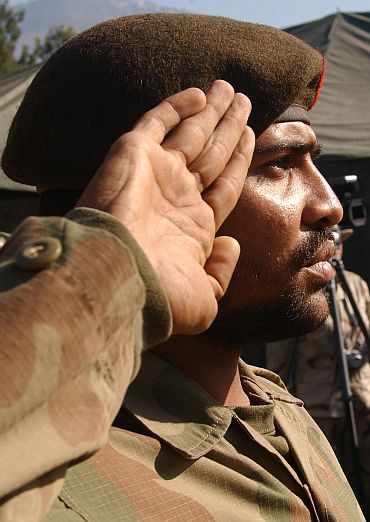
With the overt nuclearisation and Pakistan's efforts to build a nuclear arsenal with Chinese help, for the first time India faces a genuine Pakistani military threat.
Paradoxically, instead of facing this 'threat' squarely, both the countries have settled on strategy of appeasement.
America by continuing with generous aid and India continuing peace overtures and CBMs (confidence building measures) despite terror attacks and one conventional attack (Kargil, 1999).
Both the countries look at 'stabilising' Pakistan and repeat the mantra that a stable, prosperous and peaceful Pakistan is in their interest. In a curious twist of logic, a threat has been converted into 'interest'.
Use of force, containment, isolation or sanctions; are indeed not very reliable measures to deal with a rouge nuclear armed state, as example of North Korea has amply demonstrated. But in case of Pakistan, the hope of succeeding in 'stabilising' Pakistan is not strategy but wishful thinking.

The radicalisation of Pakistani society has taken such deep roots that it will be generations before that country becomes a 'normal' member of the international community.
In a candid statement, a former military ruler of Pakistan had once remarked that even if the Kashmir issue is resolved, Pakistani hostility to India will remain.
Similarly, the American withdrawal from Afghanistan will not end the Pakistani hostility to the US. Chances are that Islamic triumphalism will produce even greater threats to the US. Professor Graham T Allison of the Harvard University has long predicted that it is not whether but when, a Pakistani-origin nuke explodes in the US.
Pakistan's economic future is also bleak. The countries population is growing at the rate of 3.2 percent and it will be the third largest country in population terms by 2050.
Most of Pakistan landmass is in arid mountainous Baluchistan or in desert of Sindh. The bursting population, lack of educational facilities, lack of industry and lack of mineral resources, all point to a Malthusian nightmare.
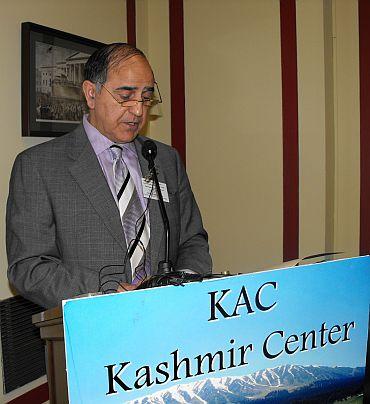
It appears that the Americans have understood the pitfalls of appeasement.
The May 2, 2011, raid in which terrorist mastermind Osama bin Laden was killed was conducted by the Americans keeping the Pakistanis in dark. It stands to military logic that should at any stage the surprise was lost; the Americans must have been prepared to engage the reacting Pakistani forces.
The recent suspension of military aid is just the beginning. The American action in arresting a Kashmir lobbyist Dr Gulam Nabi Fai on July 18, is a pointer in this direction.
Dr Fai headed the influential Kashmiri American Council and had been active for last 20 years. It is inconceivable that the American authorities would be unaware of the source of funding (Pakistani government or the Inter Services Intelligence) of his NGO.
That the Americans have chosen to act is a pointer in the direction that the US-Pak marriage of convenience is near breaking point.
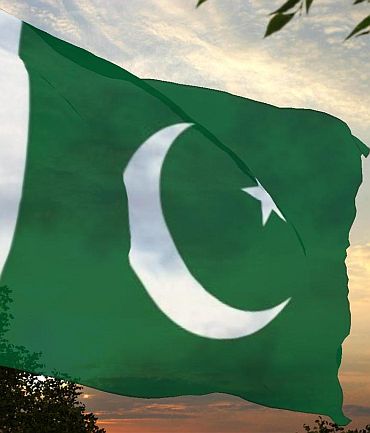
The second stage of this American response may well be to establish a more robust military to military relationship with India and blunt the Pakistani edge in conventional technology.
China cannot compensate on this score as the Americans are miles ahead in military technology.
While these major changes are taking place in the US policies, India seems stuck in the old paradigm of wishing that somehow Pakistan will turn Gandhian someday.
Neither does the leadership in India seem alive to the danger the furiously increasing Pakistan nuke arsenal poses to India.
Should we say that more than a Pakistani puzzle, it is India's Pakistan puzzle.
Colonel Anil Athale (retd) is coordinator of Indian Initiative for Peace, Arms-Control & Disarmament, a Pune-based think tank.